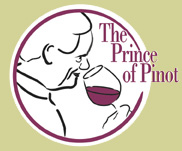Straight Talk About Women, Wine & the Fetal Alcohol Spectrum Disorders
The Centers for Disease Control (CDC) recently released a report advising all women who are sexually active
and of childbearing age not to drink any alcohol. The fear is that alcohol use during pregnancy can lead to
physical, behavioral and intellectual disabilities in offspring.
This advice is not new, for most physicians and health care agencies have advised women who are trying to
get pregnant or are pregnant to markedly reduce their alcohol intake and most advise eliminating alcohol
completely. No safe level of drinking during pregnancy has been established, and since alcohol primarily affects
brain development, drinking in all three trimesters poses a risk. The government warning on back labels of wine
in use by law since 1989 states, “(1) According to the surgeon general, women should not drink alcoholic
beverages during pregnancy because of the risk of birth defects.” The American Academy of Pediatrics and
the American College of Obstetricians and Gynecologists (ACOG) have recommended that women avoid
alcohol entirely while pregnant or trying to conceive, emphasizing that no lower safe threshold of consumption has
ever been established.
The Fetal Alcohol Syndrome (FAS) was first identified in the United States in 1973 by Kenneth Lyons Jones
and David W. Smith of the University of Washington. They described low birth weight, developmental delay,
growth deficiencies, abnormal facial features and learning and behavioral problems in children born to mothers
who drank heavily during pregnancy. Alcohol was immediately labeled a teratogen, and it was soon established
that FAS was the leading known cause of mental retardation. It is now known that there is a group of
developmental disorders that can result from maternal alcohol ingestion labeled as Fetal Alcohol Spectrum
Disorders (FASD) with Fetal Alcohol Syndrome being the most serious form of FASD.
Alcohol travels freely and rapidly across the placenta and reaches the same concentration in the fetus as the
mother. The fetus must depend on the mother for alcohol detoxification because ADH activity in the fetal liver is
minimal. It doesn’t matter if the alcohol comes from beer, wine or spirits.
A significant scientific study was published in November 2014 in the journal European Child Adolescent
Psychiatry titled, “'Fetal alcohol syndromes' result from multiple maternal factors during pregnancy." This study
and numerous other scientific research indicates that mothers of FASD children tend to be older at the time of
birth of the affected child, present lower educational level, have other family relatives with alcohol abuse, have
other children with FASD, present a pattern of little prenatal care including poor nutrition, a history of alcohol
use before and during pregnancy, failure to reduce alcohol use during pregnancy, frequent episodes of binge
drinking, and have a number of predisposing genetic factors.
It has also been found that drinking around conception and during the first three months of pregnancy may
increase the chance of miscarriage, premature labor and birth, a small baby, and even stillbirth.
Drinking alcohol unprotected throughout child bearing years and during pregnancy remains a conundrum for
women. The International Scientific Forum on Alcohol Research led by R. Curtis Ellison, M.D., professor of
medicine and public health at Boston University has the following position. “We conclude that while drinking
during pregnancy should not be encouraged, there is little evidence to suggest that an occasional drink by the
mother is associated with harm. It is estimated that 20% of women do not realize they are pregnant during the
first 3 weeks of gestation, so unneeded worry if mothers-to-be have been drinking lightly is really the key.”
Unfortunately, a randomized controlled trial cannot be done to deal with this conundrum. It is clear, however,
that in the best judgement of those most informed, socioeconomic, education and lifestyle factors of the
mother are of greatest importance in determining the potential effects of alcohol during pregnancy. Dr. Ellison
has addressed the bottom line and states, “Studies would suggest that those women with higher education,
income and other measures of socioeconomic status are much less likely to have infants with abnormalities,
and current data do not suggest that light alcohol intake among such women is an important factor in leading to
birth defects in their children.” The most important words in that statement are “light alcohol intake,” a level of
drinking in women that most physicians would define as 1 drink (5 oz of wine) per day, although the National
Institutes of Health define up to 1 drink per day as “moderate alcohol intake” and light intake would be less. In any case, alcohol intake, if any during pregnancy, should be consumed in a measured slow fashion and be accompanied by food intake.


